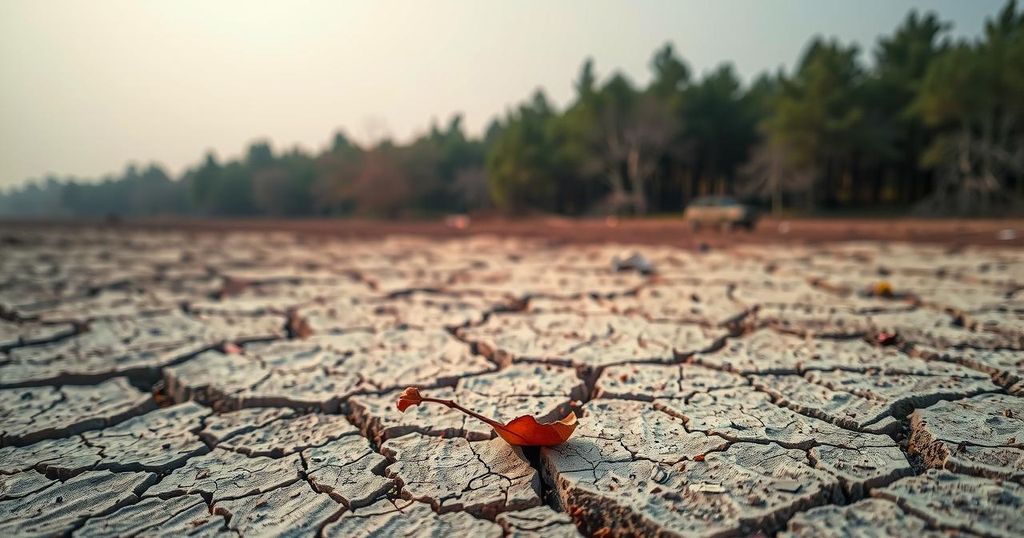São Paulo was identified as the world’s most polluted city in September 2024, primarily due to rural fires contributing to poor air quality across Brazil. Experts highlight the severe economic and health impacts, estimating that Brazil incurs annual losses nearing $1 billion because of poor air quality, which could triple when considering broader pollution factors. Legislative and monitoring gaps persist, emphasizing the urgent need for investment and action to improve air quality.
In September 2024, São Paulo gained national attention for having the world’s worst air quality, as reported by IQ Air. This alarming situation was largely due to fires in rural areas that filled the skies with smoke. During this time, Brazil recorded 156,000 fires nationwide, causing the sky to turn red, although some relief was achieved with the onset of summer rains. The issue, however, remains largely unresolved despite its visibility.
Experts stress the necessity for Brazilian authorities and companies to invest in air quality initiatives, especially within commercial and residential buildings. Poor air quality has shown significant adverse effects on public health and, by association, on workplace productivity. Paulo Saldiva, a prominent pathologist, noted that Brazil faces estimated annual losses exceeding $1 billion due to poor air quality, a figure that could rise up to $3 billion when considering pollution’s detrimental effects.
Saldiva elaborated that these economic losses stem from productive years of life lost, reflecting the impact of premature deaths on societal intellectual and economic contributions. The World Health Organization estimates that air pollution results in about 7 million premature deaths globally each year, with over 50,000 occurring annually in Brazil. Respiratory illnesses, cardiovascular diseases, and lung cancer are linked to poor air quality, posing significant health risks, particularly for children.
The intersection of climate change with air quality issues adds further complexity. Extreme weather events, such as droughts and severe rainfall, exacerbate the problem by promoting forest fires and enhancing conditions for mold and bacteria growth. Henrique Cury, CEO of EcoQuest, pointed out the challenges faced in educating business leaders on the importance of addressing air quality, though recent disasters have sparked increased awareness around the topic.
Cury stated, “Climate disasters are always related to air quality in some way,” indicating a shift in business focus following catastrophic events, prompting greater inquiry into the merits of investing in indoor air quality. Nonetheless, he emphasized the necessity for societal demand for action from both authorities and businesses to improve air quality standards in Brazil.
While advancements have been made, such as the establishment of the National Air Quality Policy under Law 14850/2024, experts argue that Brazil’s policies are still inadequate. David Tsai from IEMA highlighted the lack of sufficient air quality monitoring stations across the nation, with significant gaps especially in densely populated regions. The absence of reliable data prevents effective public policy formulation regarding air quality management.
Tsai criticized the lack of commitment from states to monitor air quality, exacerbating an overall deficiency in knowledge about pollution levels. For effective governance in this area, cooperation among all responsible parties is vital due to the pervasive nature of air quality issues. IEMA estimates that Brazil requires at least 138 additional monitoring stations based on EU standards to enhance its oversight capabilities.
In light of these deficiencies, there is a pressing need for improved air quality management in Brazil, with potential cost-effective solutions available. Senator Mara Gabrilli’s PEC 7/2021, aimed at enshrining the right to quality air in the Federal Constitution, highlights the urgency around this issue, especially following the COVID-19 pandemic, which emphasized the relationship between air quality and public health.
Senator Gabrilli expressed optimism about this constitutional proposal transforming public health and quality of life in Brazil. She cited successful international examples of air quality improvement solutions, urging for a collective approach towards better infrastructure and technology adaptation in Brazil. A transparent monitoring system would empower citizens to better engage with and demand accountability from their leaders regarding air quality legislation.
The deterioration of air quality resulting from climate change poses significant health and economic challenges in Brazil, with losses estimated at up to $3 billion annually. Despite existing laws and initiatives aimed at improving air quality, substantial gaps in monitoring and implementation persist. Experiences from natural disasters highlight the need for increased awareness among business leaders regarding the value of investing in air quality management. Further governmental action, enhanced monitoring capabilities, and public engagement are crucial to ensuring meaningful advancements in air quality for the benefit of all Brazilians.
Original Source: valorinternational.globo.com




